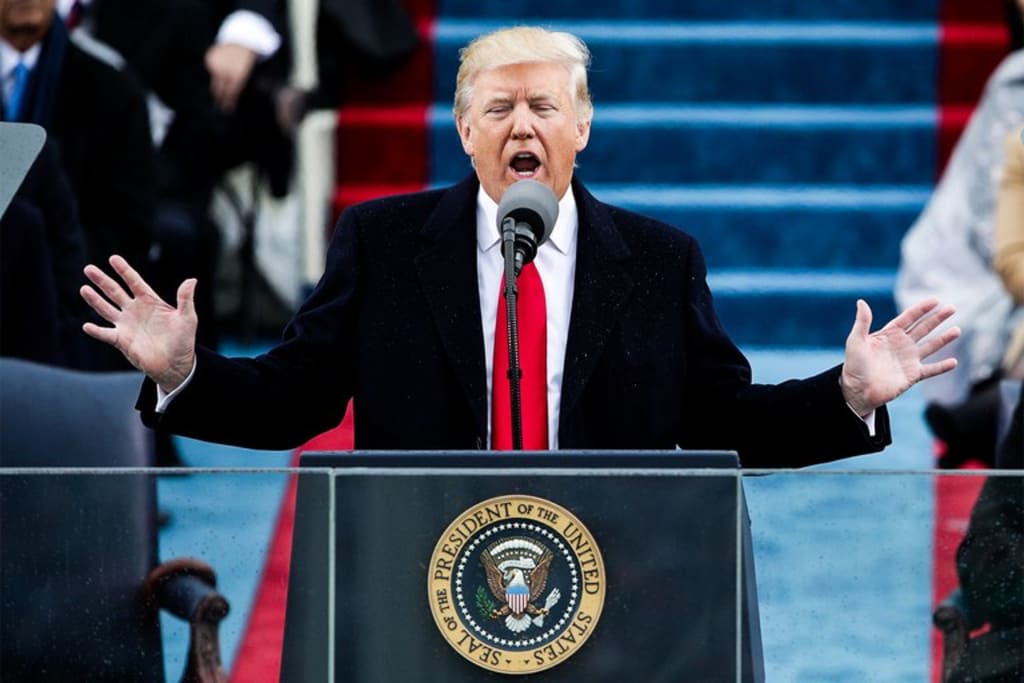World Leaders and the Power of Speech
History tells us to be wary of leaders who use manipulation the way they speak for ulterior motives. The present provides further examples.

For a few centuries, charming, angry, relatable, mesmerizing, or larger-than-life leaders have come to power with bad intentions. They manipulate the people who find out later that it was all for personal gain. The thing is, it's a recent phenomenon. Before the rise of democracy, there may have been tyrants, but none that had to manipulate citizens to gain their power. There's Napoleon in the early 19th century, who took France from revolutionary turmoil to nearly taking over Europe by becoming a charismatic, trustworthy tyrant hellbent on raising French nationalism and seizing all kinds of power. Then you have the rise of fascism with Hitler, Mussolini, Franco, and Imperial Japan, and arguably the rise of the Soviet Union, with controversial figures like Lenin and homicidal figures like Stalin. Of course, there have also been demagogue dictators in other areas of the world—Mao Zedong, Kim Jong Il, Robert Mugabe, Sadam Hussein, Fidel Castro, Hugo Chavez, Idi Amin, and Muammar al-Gaddafi.
Today, the phenomenon continues. The world still has its fair share of ruthless dictators with a firm grip on the emotions of their country's citizens: Kim Jong Un, Vladimir Putin, Nicolas Maduro, and Bashir al-Assad, just to name a few. But these are only the worst of the worst. The tactics of the worst are also used by those we may consider the "worst." In today's world, leaders such as Donald Trump, Jair Bolsonaro of Brazil, Sebastian Kurz of Austria, Viktor Orban of Hungary, Erdogan of Turkey, and countless others use populist rhetoric carefully manicured and crafted to gain the sympathy of their audience—the people.
What do all of these leaders have in common? For one, they all gained power by quickly earning the support of a large portion of the population angry with the status quo. They feed off of that with use of a variety of tactics. But, perhaps the most ruthless and effective of these tools is that of language.
Authoritarian figures in democratic states use language to develop a false image and motive in the eyes of the people. The traditional method was public speaking, but with the advent of technology, mainly social media, avenues have widened. However, the same basic themes have held.
When Americans think of the German language, they most likely think of an angry Hitler giving a gruff-sounding, rolling speech to an endless crowd sometime in the late 1930s. However, the average German does not remotely speak like this, even in Bavaria or Austria, where Hitler was born and where the accent is most pronounced. He spoke with a thick, exaggerated accent, repeating the same basic themes, rolling his r's (Austrians do not do this), and evoking a sense of German pride in his speech. Because of the extravagance and addition of rolling r's to Hitler's public speaking, it is very possible he was manipulating the perception of his speech. Why? To evoke feelings of nationalism, gain sympathy, and obtain power from the people.
Mussolini did the same. He garnered support and sympathy by not only recognizing fears and anger but by matching his speech and identity to the most "Italian" region of Italy, the south. Mussolini was loved and revered because he gave Italians a sense of pride in being Italian. They were mesmerized by the sentiment and blind to the motive, much like any other country turned to fascism, or communism in the Soviet Union and North Korea and Cuba, or socialism in Venezuela.
Fast forward to today, and people are still being fooled. Donald Trump does not speak the same way he speaks to an Indiana rally crowd the same way he speaks to Ivanka, Pompeo, or Mnuchin. Many linguistic experts say that by simply analyzing Trump's public speaking, one would guess that he has the reading level and vocabulary of a fourth grader. He does not. He is carefully crafting the way he sounds, not only while public speaking but also on Twitter, around certain themes to achieve an end goal. Trump is not the only leader doing this. Bolsonaro in Brazil gained support by spouting an array of outrageous promises and violent rhetoric. Far-right and far-left parties have sprouted up throughout Europe, sometimes with success, sometimes without, but always bringing up the same themes and rousing the same anger. Words are chosen carefully, and crafted in a way that will unite, divide, evoke passion and pride and hope.
Sometimes it is too early to recognize the end goal, but most can recognize insincerity. The problem is that people are angry, disenfranchised, and looking for answers. Who can blame citizens wanting answers and to make substantial change with their vote? Unfortunately, those answers often lie in the words of leaders with bad intentions.
About the Creator
Keegan Roembke
I am a poet? and I didn't even know it??






Comments
There are no comments for this story
Be the first to respond and start the conversation.